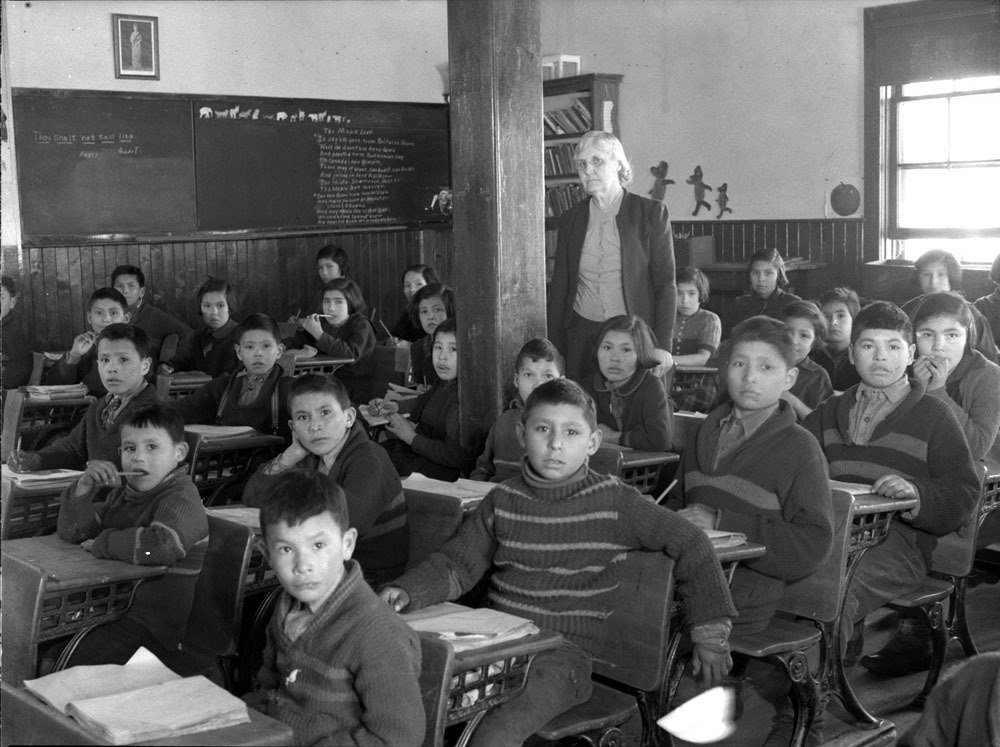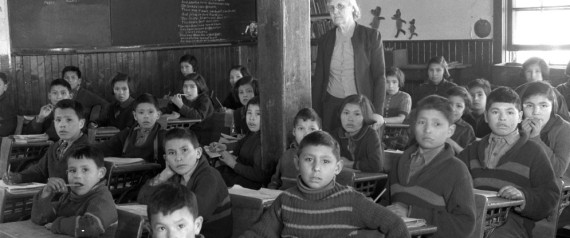Former Assembly of First Nations leader writes about First Nation genocide by Canada

What Canada committed against First Nations was genocide. The UN should recognize it
PHIL FONTAINE AND BERNIE FARBER
Special to The Globe and Mail - Oct. 14 2013
On Monday, Oct. 14, we have the unique and historic opportunity to meet with Professor James Anaya, the Special United Nations Rapporteur for Indigenous People. It is our conviction that Canada's history with First Nations people was not just dark and brutal, but in fact constituted a "genocide" as defined by the 1948 UN Convention on Genocide. Unresolved issues regarding genocide can have the effect of holding back real progress in economic development in any community.
Genocides rarely emerge fully formed from the womb of evil. They typically evolve in a stepwise fashion over time, as one crime leads to another and another.
The Holocaust is the undisputed genocide of all genocides, and it has been argued passionately by many historians that no other dark period in human history quite compares to it. Although qualitatively true in some aspects, modern historians no longer need to rely on shades of darkness in order to analyze genocide.
The United Nations Convention on the Prevention and Punishment of the Crime of Genocide (CPPCG) was adopted on Dec. 9, 1948. It gives a very clear definition of what is and what is not a genocide. Stated another way, since 1948, social scientists have had the necessary tools to determine if genocide has occurred. It should also be pointed out that under the CPPCG, the intention to commit genocide is itself a crime, and not just the act of genocide.
It's clear that Canada's first prime minister Sir John A. MacDonald's policy of starving First Nations to death in order to make way for the western expansion of European settlers meets the criteria of genocide under the CPPCG.
Similarly, the entire residential school system also passes the genocide test, in particular if you consider the fact that the Department of Indian Affairs, headed by Duncan Campbell Scott, deliberately ignored the recommendations of Peter Bryce, Canada's first Chief Medical Officer, regarding the spread of tuberculosis in the schools. Such willful disregard for the basic principles of public health constitutes an act of genocide by omission, if not deliberate commission.
Finally, we have the very recent and painful memory of forced removal of First Nations children from their families by Indian Agents which occurred in the 1960s, also known by the popular term "Sixties Scoop." This is an act of genocide that clearly meets the CPPCG test, and also fell outside of the residential school system.
Our conviction is that Canadian policy over more than 100 years can be defined as a genocide of First Nations under the 1948 UN Genocide Convention.
We hold that until Canada as represented by its government engages in a national conversation about our historical treatment of the First Nations; until we come to grips with the fact that we used racism, bigotry and discrimination as a tool to not only assimilate First Nations into the Canadian polity, but engaged in a deliberate policy of genocide both cultural and physical; we will never heal.
The fact that Canada's Aboriginal peoples have not been wiped out, and are indeed growing in numbers, is not proof that genocide never occurred, as some would have us believe. The historical and psychological reality of genocide among our Aboriginal communities is very much alive and a part of living memory. The sooner we recognize this truth, the sooner both Aboriginal and non-Aboriginal Canadians will be able to heal from our shared traumas.
This is adapted from a letter to the United Nations Rapporteur for Indigenous People delivered by Phil Fontaine, a former national chief of the Assembly of First Nations, and Bernie Farber, senior vice-president of Gemini Power Corporation and former head of the Canadian Jewish Congress. It is also signed by Elder Fred Kelly, a spiritual elder and member of the AFN Council of Elders, and Dr. Michael Dan, president of gemini Power Corporation.
+++++++++++
UN Urged To Declare Canada's Treatment Of Aboriginals 'Genocide'
The Huffington Post Canada | By Michael Bolen Posted: 10/19/2013
A fresh campaign is underway to push the United Nations to label Canada's treatment of First Nations people "genocide."
On Monday, former National Chief Phil Fontaine, elder Fred Kelly, businessman Dr. Michael Dan and human rights activist Bernie Farber sent a letter to James Anaya, UN special rapporteur on the rights of indigenous peoples, arguing that several specific crimes against aboriginal people in Canada qualify as genocide under the post-Second World War Convention on the Prevention and Punishment of the Crime of Genocide (CPPCG)
Article 2 of the Convention states that "genocide means any of the following acts committed with intent to destroy, in whole or in part, a national, ethnical, racial or religious group, as such:
(a) Killing members of the group;
(b) Causing serious bodily or mental harm to members of the group;
(c) Deliberately inflicting on the group conditions of life calculated to bring about its physical destruction in whole or in part;
(d) Imposing measures intended to prevent births within the group;
(e) Forcibly transferring children of the group to another group.
The letter writers assert that at least three actions on the part of Canadian governments constitute genocide under those rules.
1. Sir John A. MacDonald's policy of deliberately starving First Nations people to make way for settlers in the Canadian west.
2. The residential school system and especially the decision of Department of Indian Affairs chief Duncan Campbell Scott not to address rampant tuberculosis among students.
3. The forcible removal of aboriginal children from their homes for the purpose of adoption by white families, a practice known as the "Sixties Scoop." Estimates put the number of children removed between the 1960s and the mid 1980s at around 20,000.
Farber and Dan have previously argued that the recently revealednutrition experiments performed on children at residential schools also qualify as genocide.
Story continues below slideshow
Residential Schools: A Photo History1 of 28 Archives and Library of Canada
Archives and Library of Canada
The genocide argument has been criticized by Sun News pundit Ezra Levant, who wrote this summer that "Canada does not and never has had a policy of exterminating Indians. Genocides don't normally include billions of dollars a year in government grants to the group in question, affirmative action hiring quotas, land reserves and other privileges."
Levant accuses Dan of hiring Faber to curry favour with First Nations people so his Gemini Power Corp. can get permission to build power plants on reserves.
Farber told HuffPost Canada in an email that Levant's characterization is inaccurate.
"Ezra, as usual, gets it wrong."
The letter from Farber and company was sent as special rapporteur Anaya concluded a visit to Canada. He said Canada faces a "crisis" regarding its indigenous people and called for an inquiry into missing and murdered aboriginal women.
The Conservative government pledged to renew efforts to address the issue of murdered and missing aboriginal women in its throne speech Wednesday.
Earlier this year, former prime minister Paul Martin referred to residential schools as "cultural genocide." In 2012, Justice Murray Sinclair, the chairman of Canada's Truth and Reconciliation Commission, said the removal of children from their homes to residential schools was an act of genocide, but that it didn't necessarily qualify under the UN Convention.
There have only ever been two successful prosecutions under the Genocide Convention, former Rwandan prime minister Jean Kambanda and ex-mayor Jean-Paul Akayesu for crimes during the 1994 slaughter in that country. The UN's highest court cleared the government of Serbia of genocide charges in 2007, but found it breached international law in failing to stop the killing and by not handing over officials accused of war crimes.
The push for action from the UN comes amid renewed violence between authorities and aboriginal peoples. On Thursday, police cars were torched during an attempt bythe RCMP to enforce an injunction to end a demonstration against shale gas exploration in eastern New Brunswick. The Mounties said at least 40 people were arrested
The violence has sparked a renewal of the cross-country protests seen during the Idle No More movement last winter.




























